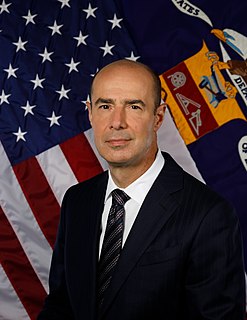A Quote by Simon Mainwaring
Move your personal investments and retirement funds to socially responsible investment (SRI) funds that support only those corporations that uphold higher standards of behavior. Returns on SRI funds are usually equal to, if not better than, many of the well-known traditional mutual funds.
Related Quotes
Our capitalistic scheme in the latter years of the 20th century seems to have lost its way. We've had a "pathalogical change" from traditional owners capitalism where most of the rewards have gone to those who make the investments and assume the risks to a new and deeply flawed system of managers capitalism where the managers of our corporations our investment system, and our mutual funds are simply take too large a share of the returns generated by our corporations and mutual funds leaving the last line investors - pension beneficiaries and mutual fund owners at the bottom of the food chain.
Even fans of actively managed funds often concede that most other investors would be better off in index funds. But buoyed by abundant self-confidence, these folks aren't about to give up on actively managed funds themselves. A tad delusional? I think so. Picking the best-performing funds is 'like trying to predict the dice before you roll them down the craps table,' says an investment adviser in Boca Raton, FL. 'I can't do it. The public can't do it.'
Millions of mutual-fund investors sleep well at night, serene in the belief that superior outcomes result from pooling funds with like-minded investors and engaging high-quality investment managers to provide professional insight. The conventional wisdom ends up hopelessly unwise, as evidence shows an overwhelming rate of failure by mutual funds to deliver on promises.
Hedge funds try to produce above-average investment returns using tactics ranging from traditional stock-picking to complex derivative and arbitrage plays. High minimum investments, redemption restrictions and aggressive strategies make them suitable mainly for more sophisticated and well-heeled investors.































